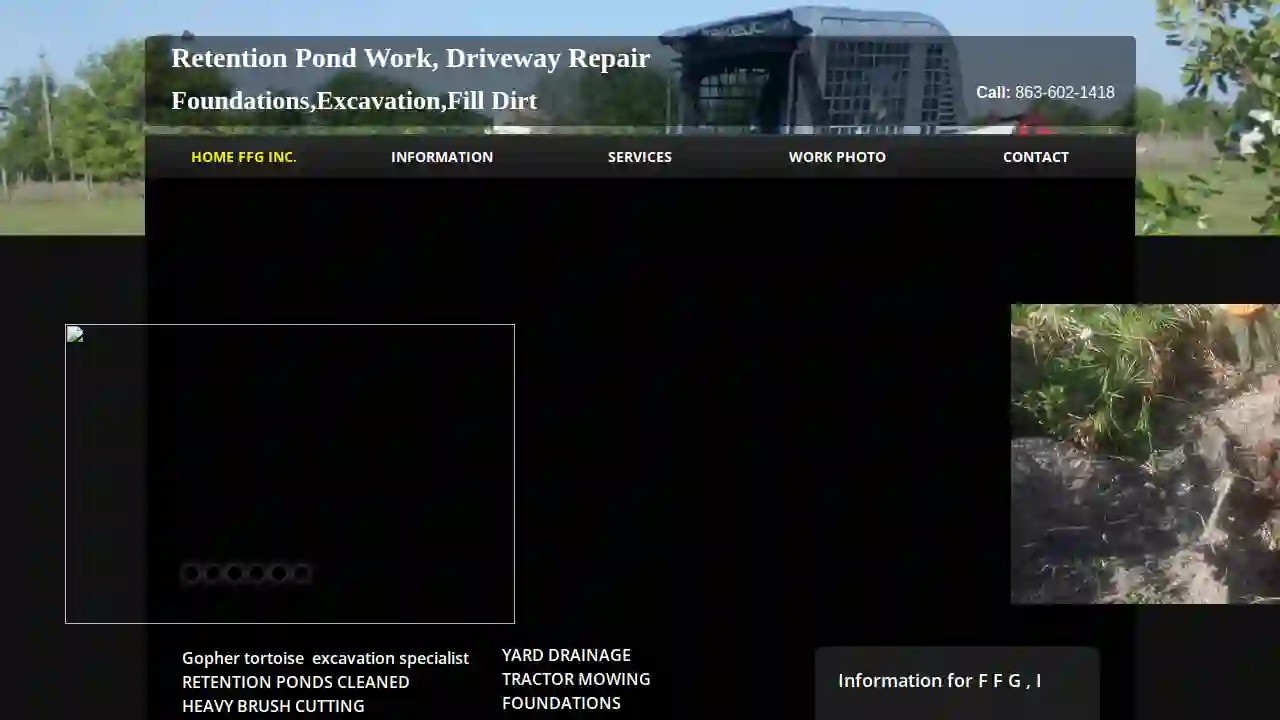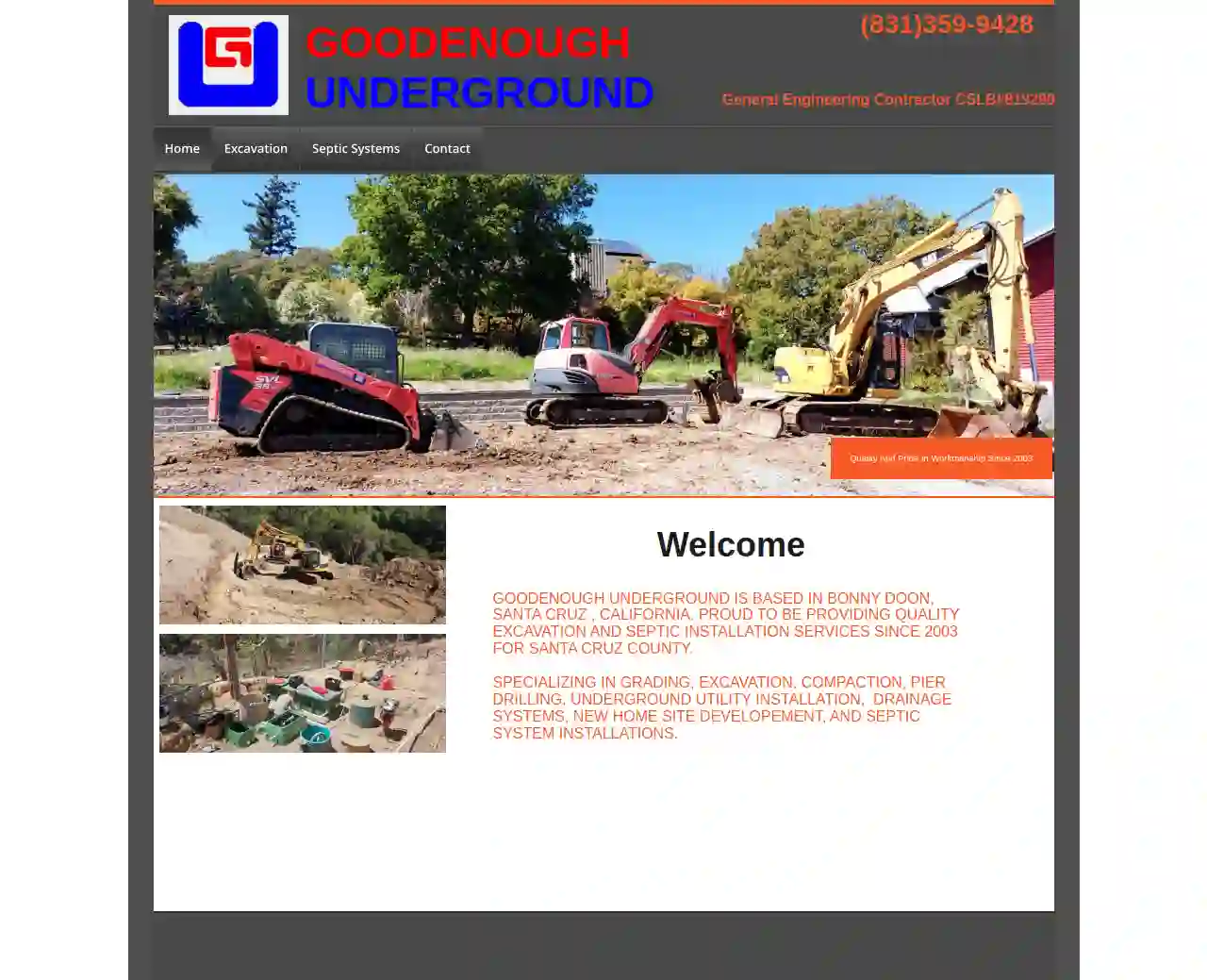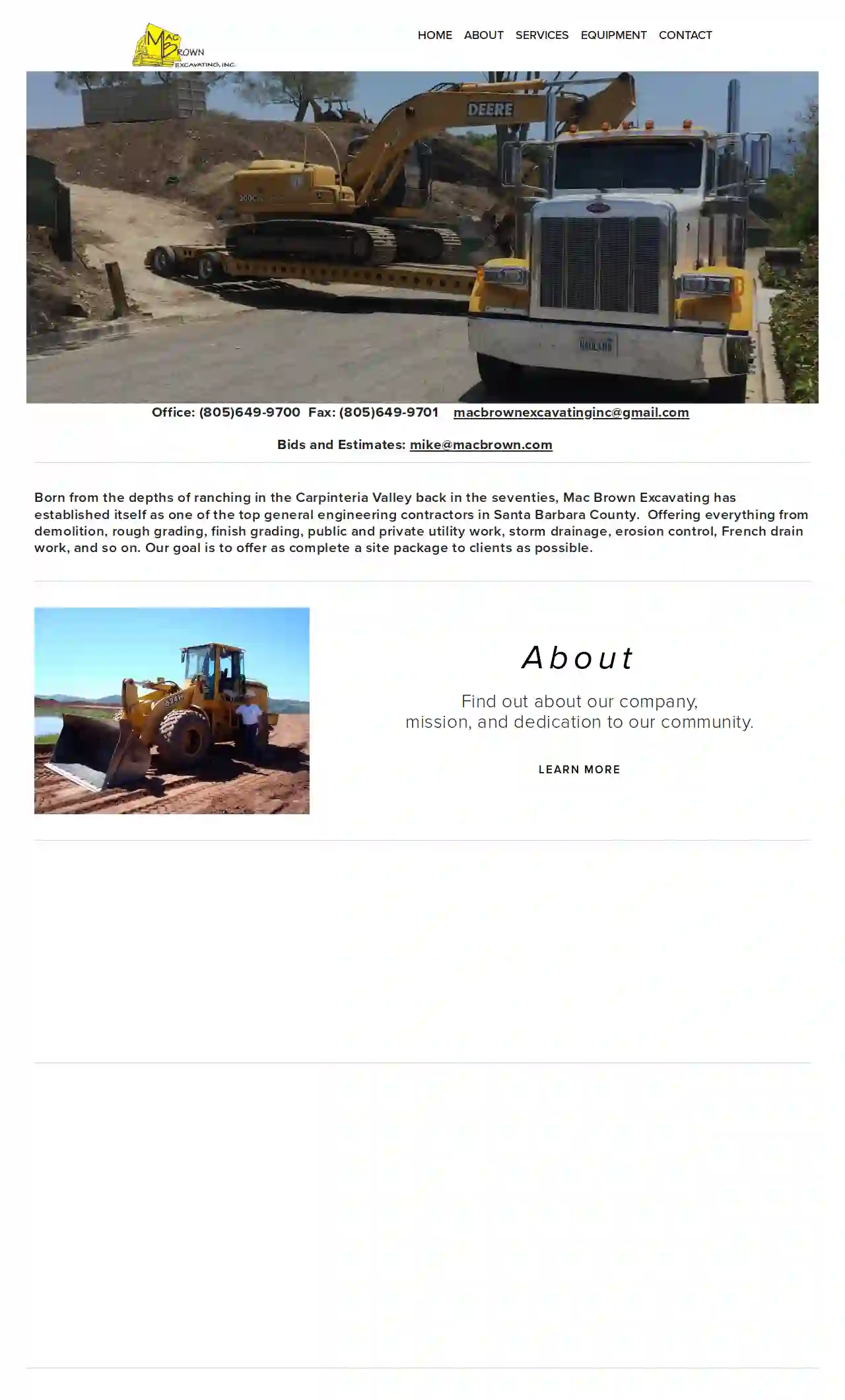Demolition Contractors Lake of the Pines
Top Demolition Experts in Lake of the Pines
Get multiple Demo Contractor quotes for your project today! Compare profiles, reviews, accreditations, portfolio, etc... and choose the best service.

Florida Finish Graders, Inc.
52 reviewsDavis, USFlorida Finish Graders, Inc. Florida Finish Graders, Inc. is located in Central Florida, with Service provided coast to coast. We are your source for central Florida land clearing, grading, excavation, foundations, and bobcat work, tractor work. We here at Florida Finish Graders, Inc. do the best work the first time, and at the most affordable price! Our Mission Helping property manager's take care of their grounds! We provide a variety of services for you. We can put together a plan so that your work site is in compliance with the FDEP from the start, avoiding costly infractions, as Raymond is a Licensed, State Certified Florida storm water erosion and sedimentation Control Inspector. Our Experience Working with the state of Florida, Operating the backhoe according to direction provided by the Project’s Florida Fish and Wildlife Conservation Commission (FWC) Gopher Tortoise Authorized Agent to excavate gopher tortoise. We tear out concrete driveways for complete replacement. Florida driveways can be made with recycled material, such as crushed concrete and asphalt-black top. Tree stump removal, tree stump grinder, large or small, we do it all. F F G Inc., has done many retention ponds or detention pond, new and rebuild to swfwmd standards for recertification, they have certified our work for double the standard time because of the superb work on our retention pond, swale work, grading, sod etc.. Florida Finish Graders, Inc. has sand and fill dirt for your yard, or complete tear out of your grass yard, (sod) and then re-grade your yard, then apply grass. FFG Inc,. can build your home foundation from the ground up or fill in stem wall foundation, building mono slab foundations. We provide sand, fill dirt, recycled material in central Florida. We can level your dirt.
- Services
- Why Us?
- Gallery
Get Quote
GOODENOUGH UNDERGROUND INC.
57 reviewsBonny Doon, USGOODENOUGH UNDERGROUND IS BASED IN BONNY DOON, SANTA CRUZ , CALIFORNIA. PROUD TO BE PROVIDING QUALITY EXCAVATION AND SEPTIC INSTALLATION SERVICES SINCE 2003 FOR SANTA CRUZ COUNTY. SPECIALIZING IN GRADING, EXCAVATION, COMPACTION, PIER DRILLING, UNDERGROUND UTILITY INSTALLATION, DRAINAGE SYSTEMS, NEW HOME SITE DEVELOPEMENT, AND SEPTIC SYSTEM INSTALLATIONS.
- Services
- Why Us?
- Our Team
- Gallery
Get Quote
Edri Construction
4.851 reviews701 Cortland Ave, San Francisco, 94110, USYour Trusted Construction Partner: Excellence from Demolition to Finishes People are looking for a reputable and reliable contractor. It does indeed represent us, but what sets us apart is the ability to be attentive to the customer and guide him patiently, from the demolition stages to the impeccable finishes, with professionalism as the common thread between each and every stage. We handle even the most complex projects entirely in-house, utilizing our own team of experts and advanced equipment. This practice allows us to accurately budget every project, ensuring transparency and efficiency throughout the process. Thanks to our satisfied customers, our growth is largely fueled by referrals. We strive to maintain this momentum by consistently exceeding expectations and delivering exceptional results. At Edri Construction, we bring expertise, reliability, and a commitment to excellence to every project we undertake.
- Services
- Why Us?
- Gallery
Get Quote
Mac Brown Excavating Inc
56 reviewsP.O. Box 8, Carpinteria, 93014, USMac Brown Excavating, Inc. Born from the depths of ranching in the Carpinteria Valley back in the seventies, Mac Brown Excavating has established itself as one of the top general engineering contractors in Santa Barbara County. Offering everything from demolition, rough grading, finish grading, public and private utility work, storm drainage, erosion control, French drain work, and so on. Our goal is to offer as complete a site package to clients as possible.
- Services
- Why Us?
- Gallery
Get Quote
KR Land Development LLC: Land Clearing and Site Prep
516 reviewsOrange, USAbout KR Land Development At KR Land Development, our mission is to transform natural landscapes into safe, sustainable, and accessible spaces. With a deep respect for the environment and a commitment to efficiency, we provide expert land clearing services that pave the way for responsible land development. Our goal is to balance the needs of our clients with the preservation of nature, delivering innovative solutions that create a harmonious coexistence between humanity and the land. We are dedicated to improving the accessibility, safety, and utility of our clients’ properties while minimizing our impact on the environment. By aligning cutting-edge technology with eco-conscious practices, we aim to be leaders in the industry, leaving a legacy of well-cleared land and a healthier planet for future generations. Ready to Get Started On Your Land Clearing Project? We've Got You Covered! If you are looking to get started on your next land clearing project, we are here to help! KR Land Development offers free consultations to every client that is interested in our land clearing or property services. We are licensed & insured, protecting our clients and their property at all times throughout the land clearing process.
- Services
- Why Us?
- Gallery
Get Quote
Sierra Construction
51 reviewsPO Box 5080, Sonora, CA, PO Box 5080 Sonora, 95370, USAbout Us We are an A and B licensed contractor located in Tuolumne County, CA. Our expertise is in grading and excavation. We offer high quality service for affordable prices that put us a step ahead of the competition. PROMPT AND RELIABLE At Sierra Construction our clients are our priority. We take pride in doing what we say we will do in regards to project timelines/budgets and we go the extra mile to make sure our customers are completely satisfied with our work. Call us today and find out what we can do for you.
- Services
- Why Us?
- Gallery
Get Quote
A to Z Statewide Plumbing Inc.
4.8579 reviews2215 Southwest 58th Terrace, West Park, 33023-3040, USDo you need emergency plumbing services? A To Z Statewide Plumbing offers fast and effective emergency residential and commercial plumbing services. We’re available 24 hours a day, 7 days a week. Our highly trained plumbing experts are ready to assist you. We’re available 365 days of the year. If you have a plumbing emergency on a holiday, we’re here to help. Our expert plumbing team is standing by to assist you. We service all residential, commercial, industrial and municipalities located throughout Dade and Broward Counties. Contact us by filling out the contact form below. You may also reach us at any of the numbers below. A plumbing expert will contact you immediately. You’ll get excellent service and low upfront pricing with no surprises. Available 24/7 for 365 days a year
- Services
- Why Us?
- Gallery
Get Quote
Cascade Environmental
53 reviews3000 Duluth Street, West Sacramento, 95691, USAbout Us Cascade is the leading provider of environmental and geotechnical drilling, site characterization and remediation in the United States. Cascade has the right equipment, experience and expertise to do the job. We offer sonic and conventional drilling technologies, and with a fleet that includes track-mounted, truck-mounted, and limited access rigs, we can access almost any drill site. Our remediation services focus on subsurface investigation and remediation applications. With experts ranging from field technicians to environmental data scientists, we partner with you to deliver the right technology for every job, no matter how routine or complex.
- Services
- Why Us?
- Gallery
Get Quote
The San Jose Excavating Company
58 reviews123 Main Street, San Jose, 95112, USExcavating Contractors San Jose: Your Trusted Partner for Excavation Services At Excavating Contractors San Jose, we are a team of experienced and dedicated professionals committed to providing top-notch excavation services to residential and commercial clients in the San Jose area. We understand that excavation projects require meticulous planning, skilled execution, and a commitment to safety. That's why we leverage our expertise and state-of-the-art equipment to deliver exceptional results that exceed your expectations. Our team is equipped with a wide range of heavy machinery and specialized tools, allowing us to handle projects of any size and complexity. From site preparation and grading to trenching and foundation excavation, we have the skills and resources to get the job done right. We are committed to providing our clients with transparent communication, competitive pricing, and a seamless experience from start to finish. Our goal is to build lasting relationships with our clients by delivering exceptional service and exceeding their expectations. Contact us today to discuss your excavation needs and let us help you bring your project to life.
- Services
- Why Us?
Get Quote
Land Clearing Group
55 reviewsOrange, USAbout The Land Clearing Group We help homeowners and businesses clear and prepare their property for the next phase of their project. Whether you need simple brush clearing or a total clear and site prep, we are here to help. Land Clearing Group is more than just a single company, we are composed of a large team of industry professionals that can handle any land clearing project; no matter the task. Our team of pros gives property owners a combined 50+ years of experience. We have worked in land projects across the state of Florida, Land Clearing Central Florida is quickly become the industry leader in customer satisfaction.Understand that this is our top priority on all land clearing solutions. Operating with such high corporate standards is not an easy task to achieve and can be solely attributed to the multiple professionals involved. Since the start of the company, we have operated on 3 principles which are visible on every project we do: We love this stuff! We will show up at each job: on time, ready to work and have fun. There will be crystal clear communication with the property owners at all times: before, during and after all projects. Your property will always be treated the same way we would treat our own property.
- Services
- Why Us?
- Gallery
Get Quote
Over 22,076+ Excavation Contractors registered
Our excavation experts operate in Lake of the Pines & surrounding areas!
ExcavationHQ has curated and vetted the Best Excavation Contractors in Lake of the Pines. Find a trustworthy business today.
Frequently Asked Questions About Demolition Contractors
- Project Assessment: The demolition contractor evaluates the structure, site conditions, and project requirements.
- Permitting: Obtain necessary demolition permits from local authorities.
- Site Preparation: Secure the site, disconnect utilities, and remove any valuable or reusable items.
- Hazardous Material Abatement: Professionally remove asbestos, lead paint, or other hazardous materials if present.
- Demolition: Execute the chosen demolition method, bringing down the structure safely and efficiently.
- Debris Removal and Site Cleanup: Sort, process, and dispose of demolition debris responsibly. Clean up the site to prepare it for future use.
- Site Security: Secure the demolition site with fencing and warning signs to prevent unauthorized access.
- Personal Protective Equipment (PPE): Workers should wear appropriate PPE, including hard hats, safety glasses, gloves, and steel-toe boots.
- Hazardous Material Removal: Properly identify and remove asbestos, lead paint, or other hazardous materials before demolition begins.
- Utility Disconnections: Disconnect all utilities, such as electricity, gas, and water, before demolition.
- Controlled Demolition Techniques: Employ controlled demolition methods to minimize risks and ensure the structure comes down safely.
- Dust Control: Implement dust suppression measures, such as water spraying or misting, to reduce airborne particles and protect air quality.
- Emergency Planning: Have an emergency plan in place, including communication protocols and evacuation procedures, in case of unforeseen events.
- Implosion: Using explosives to collapse a structure inwards rapidly. Suitable for large buildings in open areas.
- Wrecking Ball: Swinging a large steel ball to impact and break down the structure. Effective for bringing down walls and other solid elements.
- High-Reach Demolition: Utilizing specialized excavators with extended arms and demolition attachments for dismantling tall structures piece by piece.
- Selective Demolition: Removing specific parts of a building while preserving other sections. Often used in renovation projects.
- Deconstruction: Carefully dismantling a building to salvage reusable materials, reducing waste and environmental impact.
What are the steps involved in a typical demolition process?
Can I do demolition myself?
What are the safety precautions for demolition?
What are the different types of demolition?
What are the steps involved in a typical demolition process?
- Project Assessment: The demolition contractor evaluates the structure, site conditions, and project requirements.
- Permitting: Obtain necessary demolition permits from local authorities.
- Site Preparation: Secure the site, disconnect utilities, and remove any valuable or reusable items.
- Hazardous Material Abatement: Professionally remove asbestos, lead paint, or other hazardous materials if present.
- Demolition: Execute the chosen demolition method, bringing down the structure safely and efficiently.
- Debris Removal and Site Cleanup: Sort, process, and dispose of demolition debris responsibly. Clean up the site to prepare it for future use.
Can I do demolition myself?
What are the safety precautions for demolition?
- Site Security: Secure the demolition site with fencing and warning signs to prevent unauthorized access.
- Personal Protective Equipment (PPE): Workers should wear appropriate PPE, including hard hats, safety glasses, gloves, and steel-toe boots.
- Hazardous Material Removal: Properly identify and remove asbestos, lead paint, or other hazardous materials before demolition begins.
- Utility Disconnections: Disconnect all utilities, such as electricity, gas, and water, before demolition.
- Controlled Demolition Techniques: Employ controlled demolition methods to minimize risks and ensure the structure comes down safely.
- Dust Control: Implement dust suppression measures, such as water spraying or misting, to reduce airborne particles and protect air quality.
- Emergency Planning: Have an emergency plan in place, including communication protocols and evacuation procedures, in case of unforeseen events.
What are the different types of demolition?
- Implosion: Using explosives to collapse a structure inwards rapidly. Suitable for large buildings in open areas.
- Wrecking Ball: Swinging a large steel ball to impact and break down the structure. Effective for bringing down walls and other solid elements.
- High-Reach Demolition: Utilizing specialized excavators with extended arms and demolition attachments for dismantling tall structures piece by piece.
- Selective Demolition: Removing specific parts of a building while preserving other sections. Often used in renovation projects.
- Deconstruction: Carefully dismantling a building to salvage reusable materials, reducing waste and environmental impact.